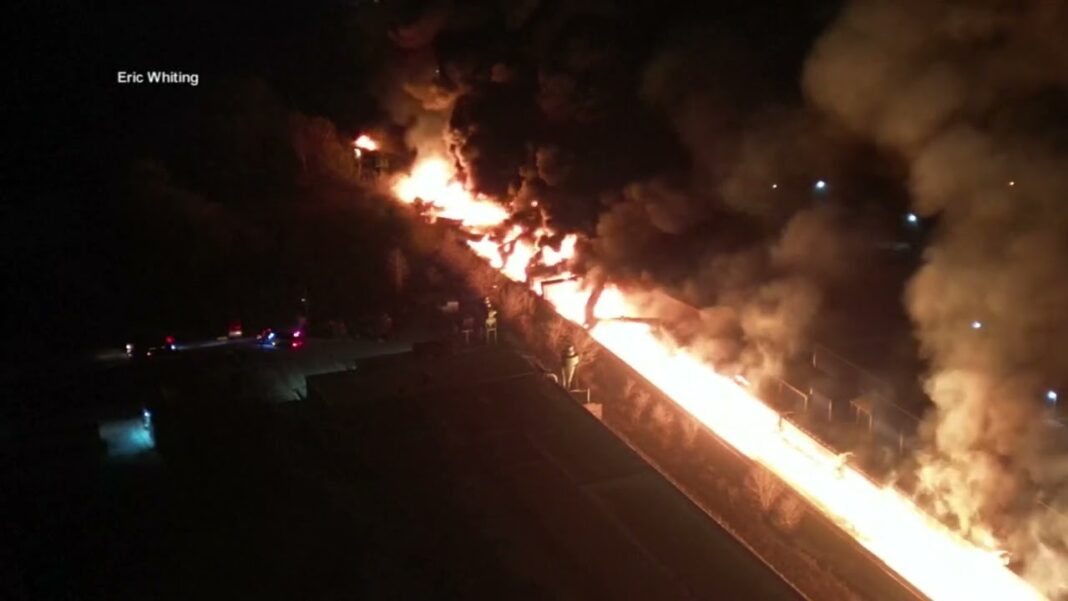City of Cincinnati announces move being done ‘out of an abundance of caution’
The City of Cincinnati announced on Friday that it will shut down its Ohio River intake to prevent any possible contamination from the East Palestine, Ohio, train derailment earlier this month.
The city, in a statement, said that it and the Greater Cincinnati Water Works (GCWW) are monitoring the Ohio River, one of the largest rivers in the United States, after the chemical spill in East Palestine. Earlier this week, an Ohio environmental official confirmed that a plume of chemicals was observed traveling down the Ohio River, and at the time, it was located near Huntington, West Virginia.
“Out of an abundance of caution,” the City’s statement said, “GCWW will shut off the Ohio River intake ahead of the anticipated arrival of the last detectable chemical concentration in the river.” As the water intake is closed down, the city will switch to its water reserves.
A day before, GCWW said in a statement that water sample testing showed “no detectable levels of the chemicals” connected to the derailment as well as the controlled burn. The Environmental Protection Agency previously said the Norfolk Southern-operated train was carrying vinyl chloride, butyl acrylate, ethylene glycol monobutyl ether, and ethyl hexyl acrylate.
Also, the water agency’s statement said that it did 133 tests of Ohio River water, finding it was negative for butyl acrylate, vinyl chloride, ethylene glycol monobutyl ether, and ethyl hexyl acrylate. Those chemicals are used in industrial production for a range of inks, dyes, paints, adhesives, enamels, and plastics.
“Our City Administration is prepared for these types of events. I understand the concern, and I’m confident that temporarily shutting off the Ohio River intake is the best move,” City Manager Sheryl Long said in a statement Friday. “There’s zero risk that our water reserves contain contaminants from the train derailment site, and tapping these reserves will give us all peace of mind. I want to thank GCWW, who are truly the best of the best, and state that I have full faith in their decision-making and their ability to keep us safe.”
Meanwhile, the city of Ashland, Kentucky, confirmed that it, too, would close off its water supply from the Ohio River while the plume passes downstream. Officials said that it was done as a precautionary move.
“We want to reiterate this is precautionary, and your water is safe to drink,” Ashland officials said in a statement Friday.






